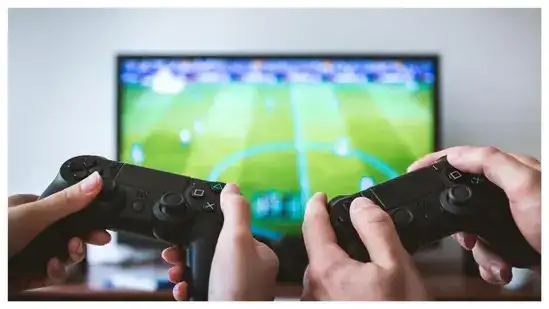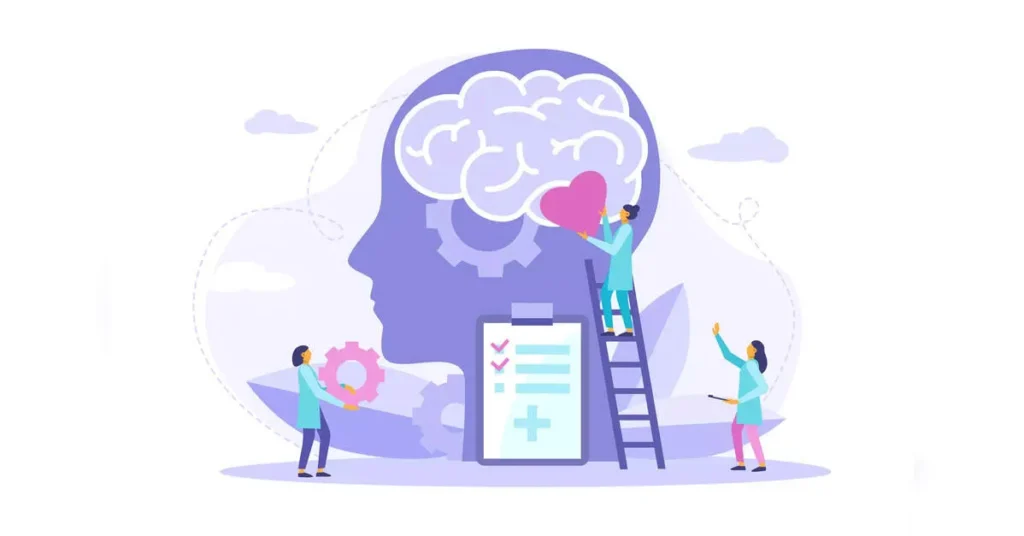In many homes, video games are grounded or even strictly forbidden because of the stigma attached to them. Due to concerns about addiction, they are frequently blamed for mental health issues. Video games, on the other hand, fall into a murky gray area. Playing video games is like walking on a tightrope, testing your ability to strike a balance between the benefits and the drawbacks, even though they may appear to be a fun and relaxing pastime.
A nearly 100,000-person Japanese study from 2020 to 2022 found a positive correlation between playing video games and better mental health. However, the research also expressed concern about the potential side effects.
advantages and disadvantages

Video games can help alleviate stress and anxiety by providing a form of escapism. The study shows that having a video game console can make life more enjoyable. Video games also provide a therapeutic experience and a creative outlet for developing cognitive abilities like problem-solving, visual-spatial navigation, and hand-eye coordination.
However, conversations with teammates during matches are frequently misconstrued as genuine socialization, resulting in inaccurate concepts of real-world communication. Health issues are exacerbated by a lack of physical activity, and gaming can sometimes develop into an addiction, resulting in unhealthy eating and sleeping patterns. However, the solution is not a blanket ban on video games. It is even more desirable when something is prohibited. Strive for equilibrium rather than banning.
achieving equilibrium

By playing video games in moderation, it is important to minimize risks to get the most out of them. Make sure that gaming time doesn't interfere with or disrupt important daily routines like eating, sleeping, and exercising. The video game shouldn't be the center of the universe.
To control video game use, it's important to set clear time limits, monitor screen time, and encourage physical activity. It is possible to encourage continued compliance by rewarding strict time limits from time to time. Make certain that the games are safe for children of all ages. Pay attention to your eating habits, especially if you skip meals or overeat while playing.
Discuss the disadvantages of excessive gaming with your children instead of resorting to punishment. Dissuade them by talking about actual instances where gaming went too far and caused harm. It is possible to cultivate a healthy relationship with video games with the right parental guidance.

Video games have become an integral part of modern entertainment, engaging billions of players worldwide. However, with the rise of gaming, concerns about addiction and its potential negative impacts on mental health have also surged. Recent studies have shed light on the nuances of gaming habits, distinguishing between healthy gaming and potentially problematic behavior.
Understanding Video Game Addiction
Video game addiction can be defined as an individual's inability to control their gaming behavior, despite experiencing negative consequences. This addiction is similar to other behavioral addictions, where the pursuit of gaming can overshadow daily responsibilities, relationships, and overall well-being. Symptoms may include:

- Intense cravings for gaming that interfere with daily life.
- Spending excessive time on gaming, even when aware of its negative effects.
- Irritability or anger when unable to play.
- Neglecting personal hygiene or responsibilities due to gaming.
The Role of Quality Over Quantity
Recent research from the University of Oxford challenges the common belief that the duration of gaming is directly correlated with adverse effects on mental health. The study, which analyzed data from nearly 40,000 gamers, found that the quality of gaming experiences is far more critical than the amount of time spent playing. Players who enjoyed their gaming sessions without feeling compelled to play reported positive mental health outcomes. In contrast, those who felt a necessity to game often experienced negative emotions.
Video games are a popular form of entertainment and a way to unwind, but recent studies have highlighted concerns about video game addiction and its potential negative effects on mental health. Despite these concerns, experts suggest that video games, when approached mindfully, can be a healthy and enjoyable hobby. A growing body of research is helping clarify how gaming can be balanced to avoid excessive engagement while still offering benefits, such as relaxation, stress relief, and even cognitive benefits.
Understanding Video Game Addiction
The concern about video game addiction has gained attention in recent years as gaming has become more immersive and widely available. Video game addiction is characterized by the inability to control gaming habits, leading to negative consequences in other aspects of life such as relationships, work, or health. While it's essential to acknowledge the risks of excessive gaming, experts argue that the act of gaming itself is not inherently problematic. What matters most is the amount of time spent, the reasons for playing, and how gaming impacts daily life.
The Role of "Flow" in Gaming
One of the most compelling concepts in understanding video game engagement is the idea of "flow." Coined by psychologist Mihaly Csikszentmihalyi, flow refers to a state of complete immersion and focus in an activity that is both challenging and rewarding. In this state, individuals lose track of time, feeling energized and focused rather than drained. Video games are uniquely suited to trigger flow because they often present players with clear goals, challenges that adapt to skill levels, and immediate feedback on performance. This makes gaming an excellent tool for engaging the mind and helping individuals escape from stress.
Balancing Gaming with Healthy Habits
While flow states can be a positive aspect of gaming, it's important to recognize that gaming can become problematic if it turns into a coping mechanism for avoiding real-life issues. Experts emphasize the need for moderation and awareness. The key to healthy gaming is setting limits on time spent, and ensuring that gaming does not interfere with important responsibilities or relationships.
To maintain balance, it is essential to integrate breaks, alternate with other activities, and keep gaming within the context of overall well-being. For example, rather than playing for hours on end, players can take regular breaks to engage in physical activity, social interactions, or other hobbies. Mindfully shifting between activities helps to avoid the kind of obsessive behavior that can lead to addiction.
The Positive Aspects of Gaming
When approached thoughtfully, video games offer several mental and emotional benefits. Research suggests that gaming can be a source of relaxation and stress relief. In addition to the cognitive benefits associated with flow, gaming has also been linked to improvements in hand-eye coordination, multitasking, and problem-solving skills. Furthermore, the rise of social gaming has fostered communities where people can connect and collaborate with others, often forming strong friendships and bonds.
Concerns about video game addiction are rising as more research uncovers the long-term psychological and social impacts of excessive gameplay. Studies have consistently shown that for most people, video games remain a harmless form of entertainment, but for a minority, gaming can evolve into a form of addiction that disrupts their daily functioning and well-being.
Pathological gaming, which is defined as excessive, uncontrollable gaming that interferes with various aspects of life, affects a smaller portion of players—estimated at about 10%. However, this group faces severe consequences, including increased levels of depression, anxiety, and aggression. Research from Brigham Young University (BYU) revealed that these individuals often struggle with emotional regulation, which can lead to difficulty in managing both their gaming behavior and their mental health. The study found that those with high levels of addiction displayed a stronger tendency towards negative emotions, including depression and anxiety, compared to non-addicted players. Moreover, gaming addiction was found to worsen these mental health issues over time, especially during the transition from adolescence to adulthood.







